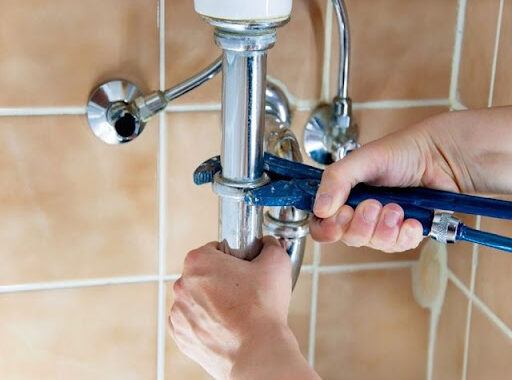Top 5 Plumbing Myths Debunked

When it comes to plumbing, there are many misconceptions that homeowners often believe. These myths can lead to costly mistakes, unnecessary repairs, or even damage to your home’s plumbing system. In this blog post, we’ll debunk the top 5 plumbing myths and set the record straight. Whether you’re dealing with a leaky faucet, a clogged drain, or considering a DIY plumbing project, it’s crucial to separate fact from fiction.
1. Myth: Lemons Clean Your Garbage Disposal
The Truth: It’s a common belief that tossing a few lemon slices into your garbage disposal will clean it and make it smell fresh. While lemons can give off a pleasant scent, they don’t actually clean your disposal. In fact, the acidic juice can corrode the metal components over time. Instead, the best way to clean your garbage disposal is by using a combination of ice cubes and rock salt. This helps dislodge debris and sharpens the blades without causing damage. For a fresh scent, you can follow up with a little baking soda and vinegar.
Proper Maintenance Tip: Run cold water for about 15 seconds before and after using your disposal. This helps to flush out any remaining food particles and prevents clogs from forming.
2. Myth: A Slow Drip Doesn’t Waste Much Water
The Truth: A slow drip might seem insignificant, but it can waste a substantial amount of water over time. On average, a single dripping faucet can waste more than 3,000 gallons of water per year! This not only increases your water bill but also contributes to water scarcity issues in many regions. Fixing a dripping faucet is usually a simple task that can save water, money, and prevent further wear and tear on your plumbing system.
Proper Maintenance Tip: Check your faucets and pipes regularly for leaks. Replacing a worn-out washer or tightening a loose connection can usually fix the problem. If the drip persists, it might be time to replace the faucet or consult a professional plumber.
3. Myth: Flushable Wipes Are Safe for Your Plumbing
The Truth: Despite being marketed as “flushable,” these wipes do not break down like toilet paper. They often accumulate in pipes and can lead to major clogs, especially in older plumbing systems. The materials used in flushable wipes are more durable, and they don’t disintegrate quickly, which means they can cause backups in your pipes and even damage municipal sewer systems.
Proper Maintenance Tip: Only toilet paper should be flushed down the toilet. Dispose of wipes, paper towels, and other hygiene products in the trash to prevent plumbing issues. Regularly inspect your toilet’s flushing mechanism and use a plunger if you notice slow draining.
4. Myth: You Can Use a Plunger for Any Clog
The Truth: While plungers are great for minor clogs, they are not a one-size-fits-all solution. Plunging can make some clogs worse, especially if there’s a significant blockage deeper in the pipe, or if the clog is caused by grease, hair, or other sticky substances. In cases of severe blockages, using a plunger can push the clog further down the pipe, making it harder to remove.
Proper Maintenance Tip: For minor clogs, a plunger can often do the trick, especially if the clog is close to the drain. However, for stubborn or recurring clogs, it’s best to use a drain snake or call a plumber. Avoid using chemical drain cleaners, as they can damage your pipes and are harmful to the environment.

5. Myth: Water Heaters Explode Frequently
The Truth: The idea of a water heater exploding is a dramatic, yet extremely rare event. Modern water heaters come with multiple safety features to prevent such occurrences, including pressure relief valves that release excess pressure. However, improper maintenance or neglecting routine inspections can lead to leaks, inefficiency, and other issues that might seem alarming but are far from explosive. Visit hi-techplumbingandair.com/plumbing-lake-worth/ where you will find lots of useful information about plumbing.
Proper Maintenance Tip: Regularly inspect your water heater for leaks, corrosion, and proper temperature settings. It’s recommended to flush your water heater annually to remove sediment buildup, which can affect its efficiency. If you hear strange noises, like banging or popping, it’s usually due to sediment buildup rather than a sign of an impending explosion. Calling a professional for regular maintenance checks will keep your water heater running safely and efficiently.
Conclusion
Understanding the truth behind common plumbing myths can save you time, money, and frustration. Regular maintenance and knowing when to call a professional can keep your plumbing system running smoothly. Always be skeptical of quick fixes and seek reliable sources or professional advice when dealing with plumbing issues. Whether it’s a leaking faucet, a clog, or concerns about your water heater, addressing these problems with the right approach ensures the longevity of your plumbing system and the comfort of your home.
By debunking these myths, you’ll be better equipped to handle everyday plumbing problems and make informed decisions that protect your home. Remember, when in doubt, it’s always wise to consult a licensed plumber who can provide expert guidance and solutions tailored to your specific needs.


 Cookies in Online Advertising
Cookies in Online Advertising  Data Storage Reliability and Durability
Data Storage Reliability and Durability  How Personal Injury Lawyers Assess
How Personal Injury Lawyers Assess  CBD in Treating Epilepsy
CBD in Treating Epilepsy  Nutrition in Preventing Osteoporosis
Nutrition in Preventing Osteoporosis  Law Enforcement to Private Investigation
Law Enforcement to Private Investigation  Top 5 Plumbing Myths Debunked
Top 5 Plumbing Myths Debunked